Budget must reflect a rights-based approach to disability
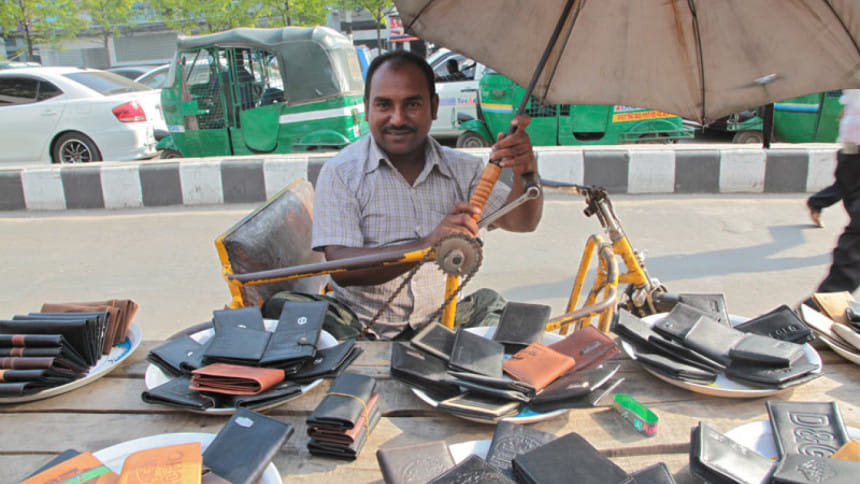
The national budget is expected to reflect a country's vision for inclusive development. Unfortunately, the same cannot be said for Bangladesh, as here the budget allocation for persons with disabilities continues to be insufficient for ensuring their rights, inclusion, and equal opportunities. One of the most pressing challenges in this regard remains the lack of accurate and comprehensive data on persons with disabilities in the country, which significantly hampers appropriate planning and budgetary allocation. According to the World Health Organization's 2022 report, about 16 percent of the world's population (130 crore) live with some form of disability. However, data within Bangladesh varies widely. The 2022 Population and Housing Census reports the number of persons with disabilities in Bangladesh to be 23.6 lakh, which is only 1.43 percent of the population. Meanwhile, an ongoing disability detection survey by the Department of Social Services under the Ministry of Social Welfare, which started in 2013, identified over 36 lakh persons with disabilities as of May 24, 2025. The Household Income and Expenditure Survey 2022 suggests that the figure is 5.71 percent of the population, while the National Survey of Persons with Disabilities 2021 puts it at 2.8 percent. This inconsistency in data not only raises questions about the reliability of national statistics, but also leaves millions of persons with disabilities invisible in development planning.
In the FY2024-25 budget, Tk 3,812.13 crore was allocated for disability-related programmes. This represents just 2.8 percent of the total social safety net budget and a mere 0.48 percent of the national budget, an amount grossly inadequate when considering the needs and rights of lakhs of persons with disabilities. Although the number of recipients under the disability allowance programme has increased, the monthly allowance of Tk 850 remains unchanged in the current fiscal year, despite rising costs of living and inflation. Similarly, the number of stipends available to students with disabilities has not increased over the past five years, stagnating at just 100,000 beneficiaries.
Another major concern is the lack of effective participation of persons with disabilities in the national budget formulation process. Their voices and experiences are not reflected in planning, and allocations are mostly concentrated within the social welfare ministry. Of the 140 social safety net programmes, only eight are targeted at persons with disabilities, seven of which fall under the social welfare ministry and just one under the education ministry. To ensure inclusive development, disability inclusion must be mainstreamed across all ministries.
The national budget fails to address the implementation needs of existing laws and policies, including the Rights and Protection of Persons with Disabilities Act, 2013 and the Neuro-Developmental Disability Protection Trust Act, 2013. As a result, persons with disabilities remain excluded from basic services such as education, healthcare, employment, training, and transportation primarily due to barriers, discrimination, and lack of awareness.
To address these gaps, several actions can be taken. The allowance for persons with disabilities should be increased to reflect actual living costs. For persons with severe disabilities who require full-time caregivers, a caregiver allowance programme should be introduced, recognising that caregivers often cannot engage in income-generating activities.
The government should also initiate targeted projects to promote entrepreneurs with disabilities. Budget allocations should support skills development and job placement. The private sector should be incentivised to employ persons with disabilities through various benefits and tax rebates.
Supportive devices tailored to the specific needs of persons with disabilities such as wheelchairs, tricycles, specialised scooters, walkers, white canes, hearing aids, portable ramps, magnifying glasses, prosthetic-orthotic, speech-to-text and text-to-speech screen reading software, Braille printer, keyboard, head pointer and joystick should be duty-free or have minimal import duty. It is necessary to allocate adequate budget to provide these products free of cost or at subsidised rate to poor individuals with disabilities. Additionally, all VAT and tax on the interest from savings instruments, including fixed deposits and deposit pension schemes held by persons with disabilities, should be withdrawn to support their financial security.
To foster inclusive public infrastructure, the budget must support the import and manufacturing of ramp-equipped public transport, accessible shelters, and barrier-free infrastructure at railway stations, bus terminals, and government offices. All digital government services, including union digital centres and ministry websites, must be made fully accessible.
In the education sector, all students with disabilities should be brought under the stipend programme. Technical education institutions should receive special allocations to support learners with disabilities. Inclusive education requires accessible infrastructure, reasonable accommodation and learning materials, such as Braille books, accessible e-books, and sign language services. Teacher training curricula must address the needs of learners with disabilities, and funds should be allocated to adapt teaching and assessment methods to diverse learning needs.
We need special projects in the budget to ensure the higher education needs of persons with disabilities. Besides, there are currently few accredited sign language interpreters in the country. The government should take the initiative in the next budget to prepare at least 100 skilled interpreters across the country.
To foster inclusive public infrastructure, the budget must support the import and manufacturing of ramp-equipped public transport, accessible shelters, and barrier-free infrastructure at railway stations, bus terminals, and government offices. All digital government services, including union digital centres and ministry websites, must be made fully accessible.
Healthcare is another crucial area where persons with disabilities face systemic exclusion. Accessible and specialised health services must be ensured through targeted budgetary allocations.
To encourage education, employment, and the prevention of violence against persons with disabilities, funding support should be given to organisations of persons with disabilities to carry out community-based campaigns and programmes.
There must be ministry-wise budget allocation for the inclusive development of persons with disabilities. Beyond the traditional reliance on the social welfare ministry, ministries such as education, health, youth and sports, labour and employment, women and children affairs, local government, rural development, housing and public works, food, disaster management and relief, all must play a role in ensuring the rights of persons with disabilities.
Despite some incremental progress, the national budget still treats disability from a welfare perspective, rather than as a rights-based development agenda. To uphold the dignity, rights, and potential of persons with disabilities, bold and inclusive financial planning is essential. It is time for the government to prioritise disability inclusion as a core component of national development.
Albert Mollah is Ashoka fellow and co-founder and executive director at Access Bangladesh Foundation.
Views expressed in this article are the author's own.
Follow The Daily Star Opinion on Facebook for the latest opinions, commentaries and analyses by experts and professionals. To contribute your article or letter to The Daily Star Opinion, see our guidelines for submission.

 For all latest news, follow The Daily Star's Google News channel.
For all latest news, follow The Daily Star's Google News channel. 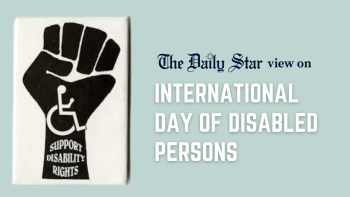
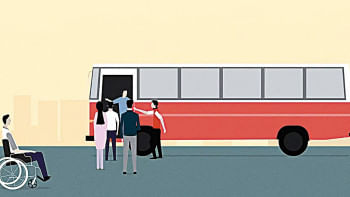


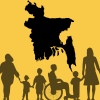





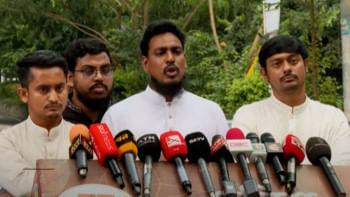
Comments